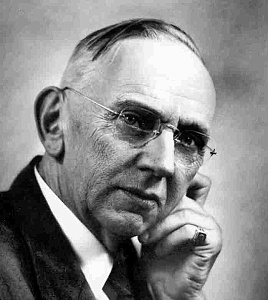| By: Paul S. Cilwa | Page Views: 4069 | ||
| Billions of Humans believe in reincarnation. Read all about the evidence in favor. | |||

In my previous essay, I said that each of us is responsible for our own situations…that, in other words, none of us is a victim of anything except our own issues.
But, surely I can't be referring to children! And, how can this apply to people who are victims of disease, especially genetic diseases or illnesses like polio or cancer?
But, I am referring to these people as well. The key to understanding how this could be, is an awareness of the fact of reincarnation. Since so much rides on an understanding of this mechanism, I will devote this essay to detailing the proof of its existence.
Reincarnation is an ancient belief—perhaps the most
ancient philosophical belief in all of Earth. Even now, in these enlightened
times, more people
accept reincarnation as a reality than do not by a factor of at least five. If
this belief was totally unfounded, it would seem likely that its adherents would be fewer.
However, as an ancient belief, reincarnation was not subject to tests. At best there were a few (or thousands) of anecdotes suggesting its existence, but which, by themselves, proved nothing.
Beginning in the 1940s, however, interest in this subject increased in the Western world; sparked, in large part perhaps, by the psychic Edgar Cayce. When further study revealed at least some scientific basis for believing in reincarnation, it became clear to anyone exposed to the information that here was, indeed, revealed a mechanism by which the Universe works.
The Sleeping Prophet

Edgar Cayce did not prove reincarnation. However, he did provide the most rigorously documented psychic evidence of it to date, and was largely responsible for the subsequent interest in it that led to books such as Twenty Cases Suggestive of Reincarnation and The Search for Bridey Murphy.
For those unfamiliar with this man's history, let me provide a brief recounting of it.
Born in 1877 near Hopkinsville, Kentucky, Cayce was the son of an uneducated farming family. A devout child of a religious family, it seemed natural that young Edgar would wish to become a preacher. However, between his educational challenges and lack of money, he could only attend school up to ninth grade. Then, when he was 21, he developed an extended case of laryngitis that seemed to end, forever, any hope of his serving Humankind in that capacity.
Lasting over a year, the laryngitis resisted all attempts at treatment, until a local man named Layne offered to try hypnosis. Skeptical, but willing to try anything, Edgar agreed to the experiment. After putting him under, Layne asked Cayce himself what the matter was. Amazingly, Edgar answered in a normal voice—and suggested a treatment which, when followed, led to his full recovery!
In the subsequent years, Cayce discovered he could diagnose and prescribe cures for anyone's illnesses—even if he had never met the person-in this hypnotically-induced sleep state. He had no medical training, but that didn't stop him from prescribing treatments involving patent medicines, herbs, magnetism, electricity, chemicals, and other techniques that ranged far beyond the medical experience of most doctors of the time.
He performed these so-called physical readings
while in a sleep-like trance. Every session was transcribed—there
were often other witnesses present, as well—and the transcriptions were typed, indexed,
and filed, something no previous psychic had attempted. Associated with the
readings were follow-up interviews and statements from the patients, their
families, and their physicians. Amazingly, every patient who followed
Cayce's recommendations was healed! This is a success rate far beyond that which
conventional doctors can hope to achieve; so it is of little surprise that
Cayce's fame spread far and wide. Newspaper after newspaper investigated and
reported him. No one was able to prove any degree of chicanery whatsoever (and they tried).
In retrospect, it is surprising that it took as long as it did before anyone thought to wonder: If Cayce could so accurately answer questions regarding the health of a distant stranger while under hypnosis, could he answer other questions as well? Cayce was at once reluctant and curious. He attempted, through the years, to locate oil, predict the winners of horse races, and so on. His accuracy rating on these subjects was average, winning some, losing some; but that may have been a byproduct of his religious upbringing. Not only was his remarkable record tarnished by these failures, but he found the attempts to be physically debilitating. He awoke from such sessions feeling drained and headachy, and, after a few such experiments, decided to stick to the physical readings, which obviously provided aid to his suffering clients.
Yet, when a wealthy Ohioan, Arthur Lammers, approached with a similar proposal, Cayce couldn't turn him down. Lammers didn't want knowledge to make himself rich; he was already rich. What he wanted was knowledge that could be shared with everyone, knowledge that could enrich the whole world. He wanted to know about life after death.
They agreed to start small. While Cayce slept, Lammers
asked him to cast his horoscope, a mathematical process for which Cayce had
never received training. Nevertheless, in his trance, Cayce pronounced a quick
horoscope, then added a puzzling statement. In reference to Lammers, he said,
He was once a monk.
The sleeping Cayce then explained that
astrology, as practiced at the time, was flawed because it didn't take into
account a person's many lifetimes!
Subsequent sessions revealed that each of us has many, many
lifetimes, each one affecting the others. And, as unlikely as this seemed to
Cayce, who was completely unaware that a majority of Earth's population
entertained this same belief, references to reincarnation began to appear in his physical
readings. A boy who had wet his bed for years, Cayce explained, was doing so in reaction to his
having been a stool dipper
, a man who punished alleged witches by
strapping them to a stool and dunking them in a pond in Puritan America. A
college professor, born blind, had once been a member of a tribe that blinded
its enemies with red-hot irons. A girl with infantile paralysis had once crippled others.
If Cayce had made these claims and stopped there, we would have little cause to consider reincarnation. However, he didn't. In many cases he provided detailed information, such as names and addresses and occupations; and, in many of these cases, the lifetime described was recent enough so that the information could be verified…and, in every such case, it was.
It would seem, then, that Cayce alone had proven
the concept of reincarnation.
However, though Cayce had carefully documented his readings,
scientists were reluctant to accept his evidence because Cayce, himself,
was not a trained scientist. And so scientists, and those who faithfully
follow the priesthood of science, had to wait for a scientist to gather
additional evidence. They did not have to wait for long.
Religious Sources
| By: Paul S. Cilwa | Page Views: 3267 | ||
| A surprising number of religious traditions, including Judeo-Christian, include references to reincarnation. | |||

Most people on earth believe in reincarnation, though only a minority of Americans do. The majority of believers live in India, China, and Tibet. Westerners have looked at the poverty, disease, and overpopulation of these countries, and put blame for these conditions on the local belief in reincarnation. Yet it was the same Westerners who colonized those countries and caused the resulting poverty, disease, and yes, even overpopulation. So let's look at various world religions and see what they actually have to say.
Read more…
One Life To Live?!
| By: Paul S. Cilwa | Page Views: 3025 | ||
| The concept of reincarnation was so ingrained in the early Christian church that it took 800 years to wipe it out! | |||

The Council was convened with the express purpose of condemning reincarnation once and for all. Here's how it was done: A total of 15 anathemas were created. Think of them as condemnations. The first anathema was, If anyone assert the fabulous pre-existence of the souls (reincarnation), and shall assert monstrous restoration which follows from it, let him be anathema. From that point forward reincarnation was forbidden from Christian beliefs. Individuals who chose to preach reincarnation were persecuted. The church's campaign of terror and slaughter lasted until the 13th century when the last vestige of the belief disappears from the literature…and it has remained so ever since.
Read more…
Living With Reincarnation
| By: Paul S. Cilwa | Page Views: 3202 | ||
| Living with a belief in the mechanisms of reincarnation and karma requires a re-evaluation of pretty much every opinion and attitude we possess. | |||

Most people on earth believe in reincarnation, though only a minority of Americans do. The majority of believers live in India, China, and Tibet. Westerners have looked at the poverty, disease, and overpopulation of these countries, and put blame for these conditions on the local belief in reincarnation.
Read more…
Quotes
| Page Views: 2826 | |||
| Here's what a lot of famous philosophers had to say about reincarnation. | |||

We were in being long before the foundation of the world; we existed in the eye of God, for it is our destiny to live in Him. We are reasonable creatures of the Divine Word; therefore, we have existed from the beginning, for in the beginning was the word.
Read more…



